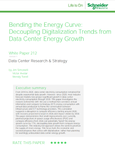Microsoft has agreed to purchase 1.5 million tons of carbon removal credits over the next 30 years from a large-scale afforestation project in India.
The agreement was signed with Climate Impact Partners, a provider of carbon markets solutions, and Terra Natural Capital, a firm that offers climate project finance. Climate Impact is the project developer, while Terra Natural is the project's major funder.
The credits are tied to the Panna afforestation project in the Madhya Pradesh State, India.
The purchase, which is Microsoft's first in the Indian market, represents 50 percent of the project's three million-ton projected output. It is also Microsoft's largest carbon removal purchase in the APAC region to date.
The project, which covers 20,000 hectares, will involve planting 11.6 million mixed native trees across farm and community land.
“By securing a long-term supply of high-quality carbon credits, this model empowers companies like Microsoft to meet their ambitious climate targets, drive growth in the carbon removal market, and bring benefits to communities most impacted by climate change,” said Sheri Hickok, CEO, Climate Impact Partners.
The project has completed its project feasibility phase. Climate Impact Partners used digital and remote monitoring technology to carry out detailed risk assessments.
As of October 2023, 600,000 trees have already been planted and the project is inviting companies interested in securing large volumes of carbon credits to apply to fund the scale-up of the project.
The project also aims to benefit the local community by creating new sources of income through the planting of fruit trees and the creation of new jobs through nurseries, project implementation, and monitoring.
Commenting on the agreement, Brian Marrs, senior director of energy markets at Microsoft, said: “Panna forms an important part of our growing portfolio of carbon removal projects – our first in India and largest in the APAC region. The collaboration with Climate Impact Partners helps to ensure that millions more trees are planted, more carbon is removed from the atmosphere, more jobs are created, and more finance flows back to local communities.”
Carbon credits backed by afforestation programs have faced criticism over recent years, with environmentalists arguing that claims to leave trees unfelled do not create additional forests and may even be temporary.
Microsoft is the largest corporate buyer of carbon removal credits in the world. The tech giant has already signed two afforestation carbon removal deals this year.
In January, it inked an agreement to acquire more than seven million carbon credits over a 25-year period from Chestnut Carbon, a US-based afforestation firm.
Earlier that month, it signed a 25-year agreement with Brazilian reforestation startup Re.green for 3.5 million carbon credits.
The firm has also purchased carbon credits from a range of different companies offering varying carbon sequestration and removal technologies. These include direct air capture, biomass, waste concrete, and enhanced rock weathering.
However, 2024 also saw Microsoft accused of greenwashing due to its close links with fossil fuel companies.
In a filing with the US Securities and Exchange Commission from the non-profit As You Sow, Microsoft was accused of hypocrisy for styling itself as a “first mover” on climate change while targeting fossil fuels as the most significant growth opportunity for artificial intelligence, machine learning, and cloud computing services.







